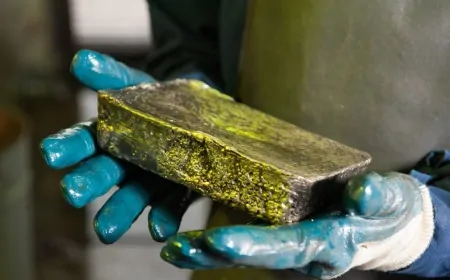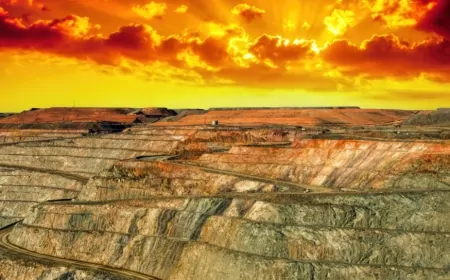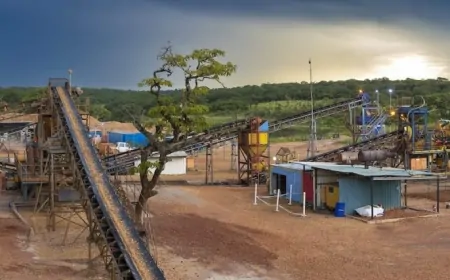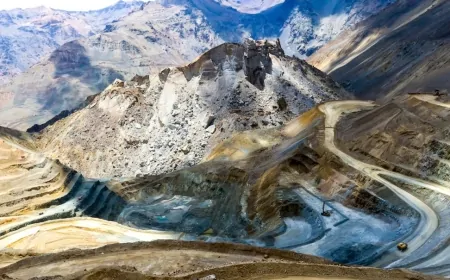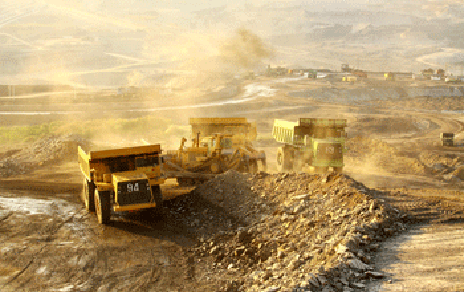At least 12 dead in Venezuela gold mine collapse
The open-pit mine collapsed on Wednesday following a landslide
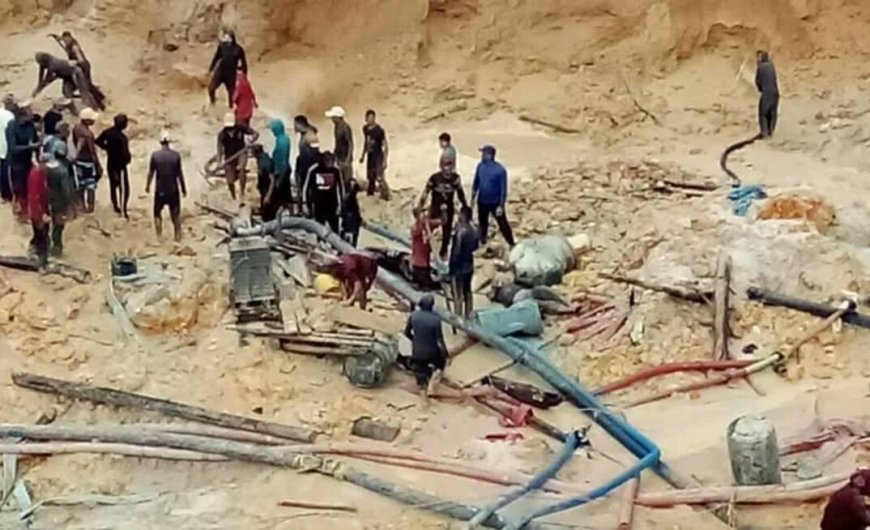
At least twelve people died in the collapse of an open-pit gold mine, Venezuelan government officials said. The mine in San José de Wadamapa in the Gran Sabana region collapsed on December 6 following a landslide.
At least three miners were injured and taken to the hospital.
On Thursday, governor Ángel Marcano and Venezuelan security agencies visited the site to support search and rescue work to free trapped miners.
On Saturday, armed forces delivered humanitarian support to the local Ikabarú indigenous community, Carlos Pérez Ampueda, vice minister for risk management and civil protection, said.
YOU MIGHT ALSO LIKE
- Mining firms in Latin America faced with risks
- Mining investment risk hits 7-year high
"Food, medicine, disposable surgical material, hydration, and belonging were delivered," Pérez said on social media, adding that the bodies of twelve deceased miners are being transferred to Puerto Ordaz.
However, while government officials report up to 12 deaths so far, advocacy group and non-profit SOS Orinoco reports a higher death toll.
"Yesterday, December 6, a 10-meter ravine collapsed … at least 18 Venezuelan and indigenous people died, and 3 Brazilians were injured," SOS Orinoco said on social media.
The non-profit added that it's not the first mine collapse in the region, following an earlier cave-in on November 12, which left at least one person injured.
Guyana dispute
Meanwhile, tensions are rising between Venezuela and neighbouring Guyana over a territorial dispute. Last week, Venezuela's president Nicolás Maduro announced that he wants to annex Guyana's Essequibo region, which covers over two-thirds of the country.
Maduro's threats followed a national referendum where voters were asked to voice their opinion on the annexation, with some 95% of people voting in support. The government promptly redrew Venezuela's map to include Essequibo.
"I signed the official decrees for the development and defence of the new state of Venezuela ‘Guayana Esequiba'," Maduro said on Friday. "I ask for the blessing of the creator and all the support of the Venezuelan people and the FANB to advance in peace towards the great objective: that our Venezuela remains with your complete map and follow your path of glory and union."
Essequibo is rich in oil and mineral resources. After ExxonMobil made significant oil discoveries off its coast in 2015, the century-old dispute started simmering again.
In response to the threats, Guyana has put its security forces on high alert, and Brazil has moved its troops towards the border. Guyana's president Irfaan Ali asked the UN, Caricom, the Commonwealth, and bilateral partners for support.
"This is a direct threat to Guyana's territorial integrity, sovereignty, and political independence, and in violation of fundamental principles of international law," Ali said in a statement. "The measures announced are in blatant disregard of the order given by the International Court of Justice in December 2023. Guyana views this as an imminent threat to its territorial integrity and will intensify precautionary measures to safeguard its territory."
At least twelve people died in the collapse of an open-pit gold mine, Veneuelazn government officials said. The mine in San José de Wadamapa in the Gran Sabana region collapsed on December 6 following a landslide.
At least three miners were injured and taken to the hospital.
On Thursday, governor Ángel Marcano and Venezuelan security agencies visited the site to support search and rescue work to free trapped miners.
On Saturday, armed forces delivered humanitarian support to the local Ikabarú indigenous community, Carlos Pérez Ampueda, vice minister for risk management and civil protection, said.
YOU MIGHT ALSO LIKE
- Mining firms in Latin America faced with risks
- Mining investment risk hits 7-year high
"Food, medicine, disposable surgical material, hydration, and belonging were delivered," Pérez said on social media, adding that the bodies of twelve deceased miners are being transferred to Puerto Ordaz.
However, while government officials report up to 12 deaths so far, advocacy group and non-profit SOS Orinoco reports a higher death toll.
"Yesterday, December 6, a 10-meter ravine collapsed … at least 18 Venezuelan and indigenous people died, and 3 Brazilians were injured," SOS Orinoco said on social media.
The non-profit added that it's not the first mine collapse in the region, following an earlier cave-in on November 12, which left at least one person injured.
Guyana dispute
Meanwhile, tensions are rising between Venezuela and neighbouring Guyana over a territorial dispute. Last week, Venezuela's president Nicolás Maduro announced that he wants to annex Guyana's Essequibo region, which covers over two-thirds of the country.
Maduro's threats followed a national referendum where voters were asked to voice their opinion on the annexation, with some 95% of people voting in support. The government promptly redrew Venezuela's map to include Essequibo.
"I signed the official decrees for the development and defence of the new state of Venezuela ‘Guayana Esequiba'," Maduro said on Friday. "I ask for the blessing of the creator and all the support of the Venezuelan people and the FANB to advance in peace towards the great objective: that our Venezuela remains with your complete map and follow your path of glory and union."
Essequibo is rich in oil and mineral resources. After ExxonMobil made significant oil discoveries off its coast in 2015, the century-old dispute started simmering again.
In response to the threats, Guyana has put its security forces on high alert, and Brazil has moved its troops towards the border. Guyana's president Irfaan Ali asked the UN, Caricom, the Commonwealth, and bilateral partners for support.
"This is a direct threat to Guyana's territorial integrity, sovereignty, and political independence, and in violation of fundamental principles of international law," Ali said in a statement. "The measures announced are in blatant disregard of the order given by the International Court of Justice in December 2023. Guyana views this as an imminent threat to its territorial integrity and will intensify precautionary measures to safeguard its territory."
What's Your Reaction?








